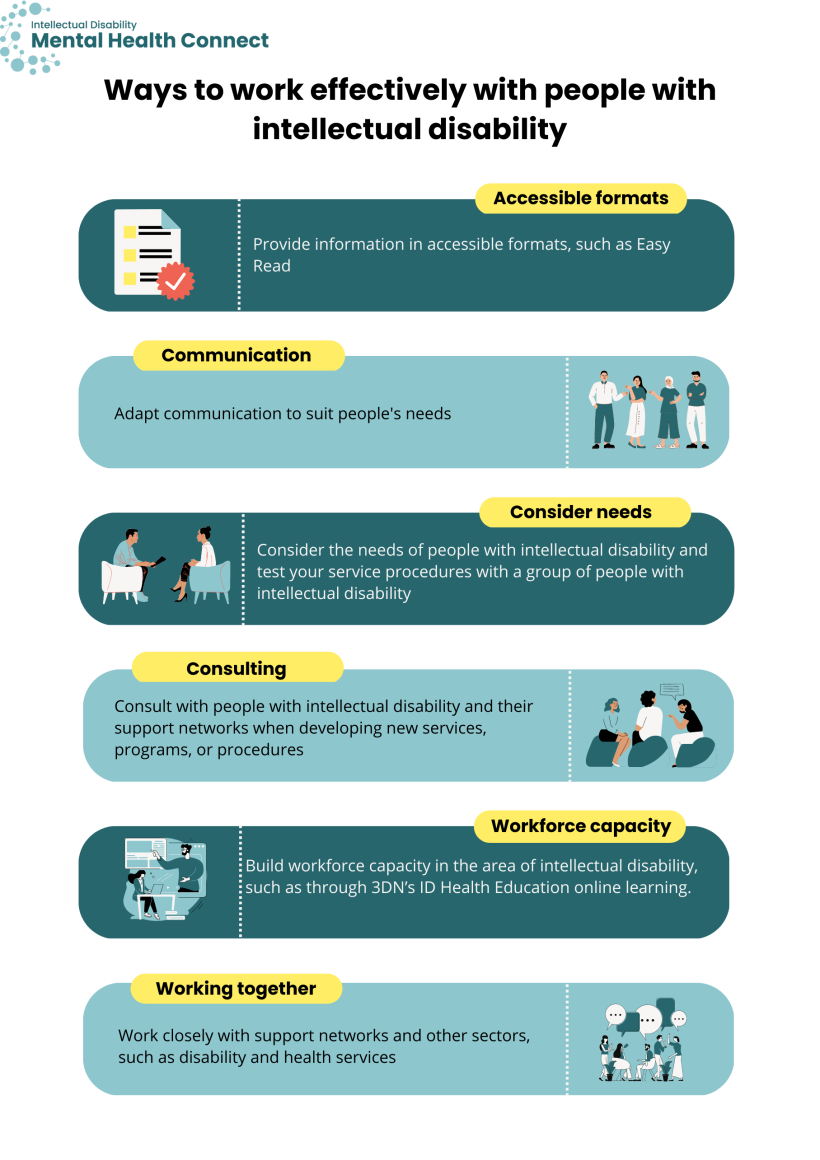Role of social services
Jump to a section below
Key points
- Social services provide a broad range of services that can support a person as they seek help for and recover from mental health problems.
- Social services can assist with ensuring the person has housing or a safe place to live, has support to find a job or to study and is linked with community activities and opportunities that can help them recover and thrive.
Broader role in supporting someone to have good mental health
Social services play a broad role in supporting a person to have good mental health. For example, having safe accommodation and being able to participate in community activities contribute to good mental health and wellbeing.
Social services can:
- support the provision of housing, especially for those facing homelessness or living in unsuitable housing that may be contributing to mental health problems
- ensure that the person is safe within their home (e.g. they feel safe with the people who live with them)
- support the person to find a job or to study
- provide early intervention support to families vulnerable to mental health problems, including drug and alcohol use and/or gambling disorders
- link the person with community activities and opportunities, such as volunteering
- ensure that the person with intellectual disability is provided with accessible information about how to seek help if they need it
- link in with disability services to ensure that the person’s needs are being met. You can also provide information to people on how they can apply for the National Disability Insurance Scheme (NDIS) if they are not a participant
- support the person around disability support pension issues or providing paperwork when applying for the NDIS
- promote and develop inclusive communities. There are some ideas in the next section.
Social services may have a role in providing support at some stages of the person’s mental health care pathway. For example, you may:
- provide reports or letters that may support a person’s mental health assessment
- work collaboratively with members of the person’s mental health team to support treatment, such as linking the person with activities and opportunities that can improve their mental health
- ensure the person has access to the disability supports they need to facilitate recovery and maintain good mental health.
Working with people with intellectual disability
People with intellectual disability often mention that they have difficulty engaging with social services. This is often because there is no specific information for people with disabilities or the information may be hard to understand.

All social services should develop workforce capacity to work effectively with people with intellectual disability. There are many ways that you can do this, including:
- providing information in accessible formats, such as Easy Read. See 3DN’s Making mental health information accessible for people with intellectual disability – A Toolkit for more information.
- adapting communication
- considering the needs of people with intellectual disability and testing your service procedures with a group of people with intellectual disability
- consulting with people with intellectual disability and their support networks when developing new services, programs, or procedures
- building workforce capacity in the area of intellectual disability, such as through online learning by 3DN’s Intellectual Disability Health Education that are available for a small fee
- working closely with support networks and other sectors, such as the disability and health sectors.
The Council for Intellectual Disability provides inclusion services to organisations who want to become more inclusive of people with intellectual disability.
Some of the other pages on this website can provide tips and help with generating ideas for how you can develop capacity around working with people with intellectual disability. Some pages that might be of interest include: